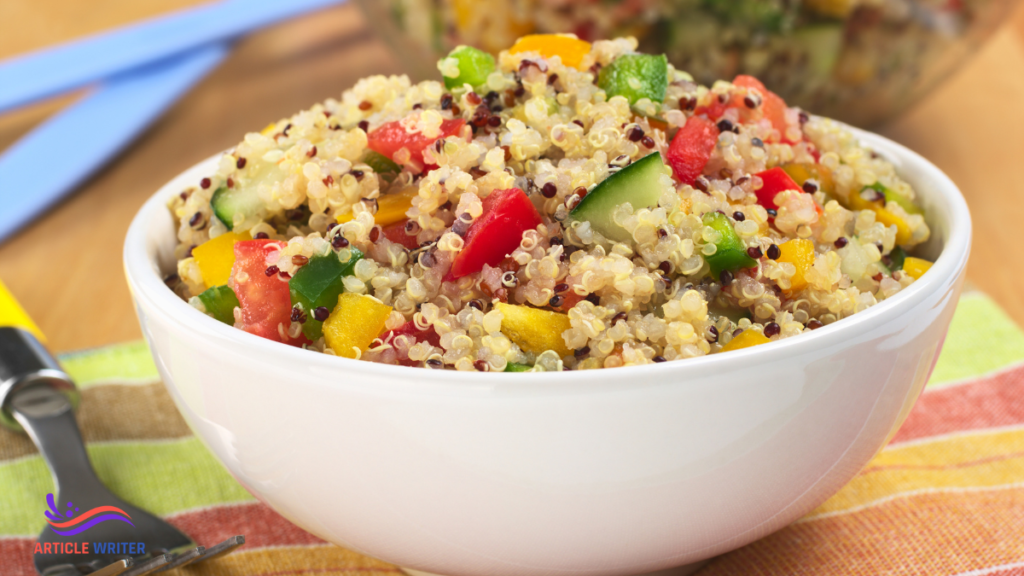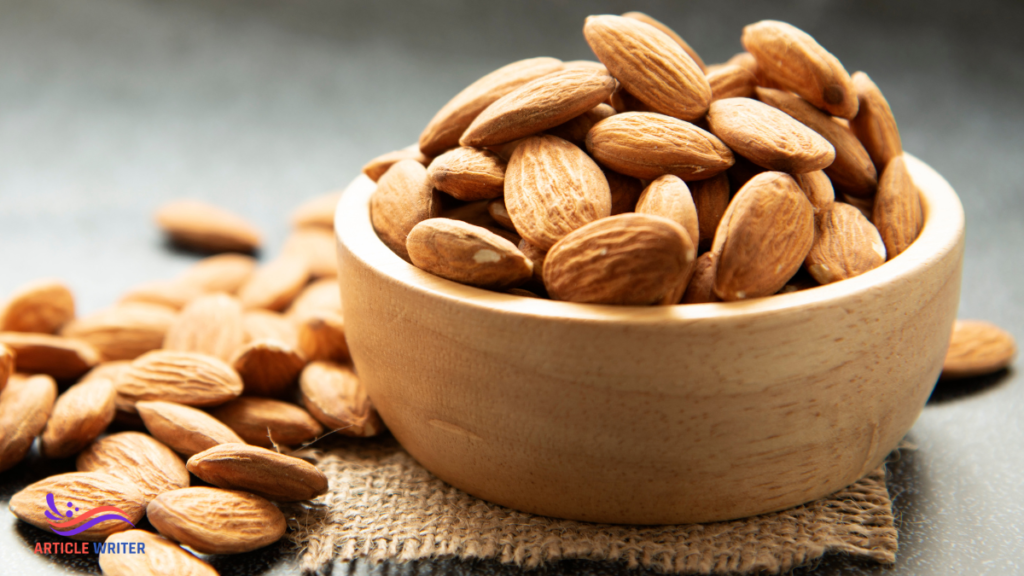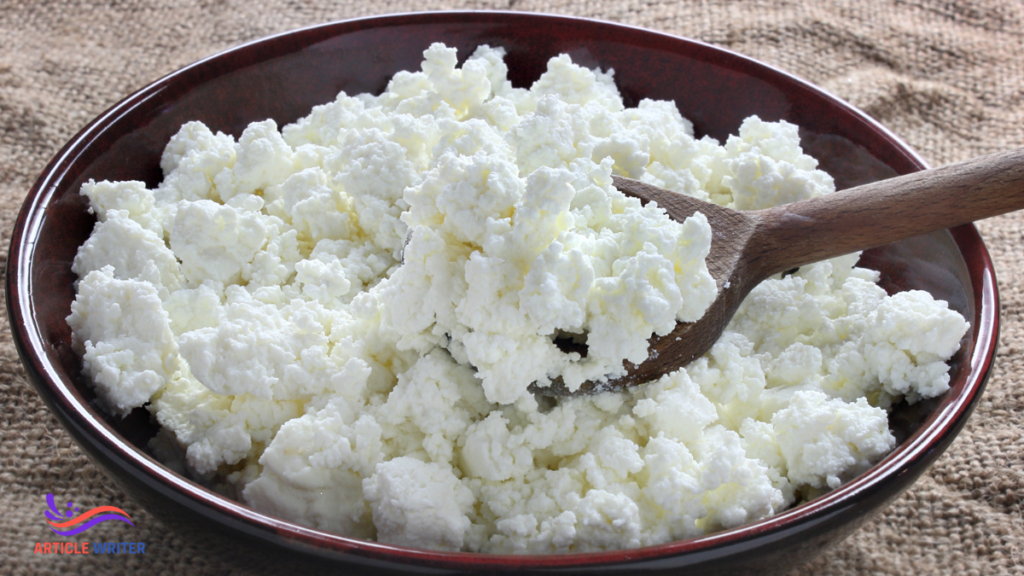Introduction
Proteins are the building blocks of life, playing an important role in every cell and tissue in our body. They are essential for growth, repair, and maintenance, making them an indispensable part of a balanced diet. Although many people associate protein with animal-based sources such as meat and dairy, protein-rich foods are available to suit various dietary preferences. In this blog post, we discuss 9 High Protein Foods for Muscle and Energy that are nutritionally sound but offer a unique cooking experience.
9 High Protein Foods for Muscle and Energy
1. Fresh Milk
Milk is an important beverage for people of all ages and has a rich protein content. For example, whey in cow’s milk and casein are proteins, both offer a complete amino acid profile.
Following are the pros and cons of fresh milk.
| Pros | Cons |
|---|---|
| 1. Fresh milk is packed with calcium, protein, vitamin D, and phosphorus, that improve bone health, muscle growth, and overall well-being. | 1. Fresh milk can have bacteria like E. coli, Salmonella, and Listeria, which can cause severe illness. |
| 2. Some individuals find fresh milk easier to digest compared to pasteurized milk. | 2. Lactose contents of fresh milk can cause digestive issues. |
| 3. While not always the case, some claim that fresh milk, especially from grass-fed cows, may contain higher levels of certain nutrients like omega-3 fatty acids and conjugated linoleic acid. | 3. The dairy industry contributes to greenhouse gas emissions, water pollution, and land use. |
| 4. The dairy industry contributes to greenhouse gas emissions, water pollution, and land use. |
2. Quinoa

Quinoa has gained a lot of popularity over the years and for good reason. This grain-like seed is a complete protein, containing all nine essential amino acids that our bodies cannot produce on itself. Additionally, it is rich in fiber, vitamins, and minerals, making it a great addition to any diet.
There are some pros and cons relating to Quinoa which are stated below:
| PROS | CONS |
|---|---|
| 1. Quinoa is a plant-based foods that contain all amino acids, making it a complete protein | 1. Compared to other grains, quinoa tends to be more expensive. |
| 2. Quinoa promotes digestive health and regulates blood sugar levels due to its fiber content. | 2. The outer coating of quinoa contains saponins, that have a bitter taste. |
| 3. Quinoa promotes digestive health and regulates blood sugar levels due to its fiber content. | 3. Quinoa is not a low-carb option due to its carbohydrate content. |
| 4. A suitable option for individuals with gluten sensitivity or celiac disease. | |
| 5. Quinoa Can be used in various dishes, from salads and bowls to pilafs and desserts. | |
| 6. Quinoa is full of vitamins, minerals, and antioxidants, including magnesium, iron, and copper, which improve overall health. |
FOR BEST AND INFORMATIVE ARTICLES CLICK HERE
3. Yogurt

Greek yogurt is thicker and creamier than regular yogurt due to the nonpresence of whey. It boasts twice the protein of regular yogurt, making it a great choice for those who looking for a protein boost. Additionally, it is an excellent source of probiotics, promoting gut health.
Following are the pros and cons of Yogurt:
| PROS | CONS |
|---|---|
| 1. Calcium, protein, and vitamin B12 yogurt are essential for bone health, muscle, and red blood cell growth. | 1. Many flavored yogurts are high in added sugars, which can contribute to weight gain and other health issues. |
| 2. Many yogurts contain probiotics that promote gut health, aid digestion, and boost immunity. | 2. People with lactose intolerance may experience digestive discomfort when consuming dairy products like yogurt. |
| 3. Yogurt can manage weight as it is a food with protein and low calories. | 3. Individuals with milk allergies cannot consume yogurt. |
| 4. Yogurt can be enjoyed in various ways, from a simple snack to a base for sauces and dressings. | 4. The dairy industry emits a lot of greenhouse gases and uses a lot of water |
4. Eggs
Eggs are often called nature’s multivitamin because of their extraordinary nutritional content. They are rich in protein but also provide an array of vitamins and minerals, including collagen, an essential for mental health.
The pros and Cons of Eggs are detailed below:
| PROS | CONS |
|---|---|
| 1. Eggs protein, vitamins (A, D, E, K, and B), minerals, and antioxidants. | 1. The yolk contains cholesterol, which can create problems for some individuals with heart disease risk factors. |
| 2. They provide all amino acids, making them a great protein source for muscle growth and repair. | 2. However, recent studies suggest that dietary cholesterol may not significantly impact blood cholesterol levels for most people. |
| 3. Eggs are relatively low in calories, making them a satisfying and filling option. | 3. Some people have egg allergies, which can cause severe reactions. |
| 4. Eggs can be prepared in various ways, from scrambled and fried to boiled and poached. | 4. A risk of salmonella contamination in eggs, so proper handling and cooking are crucial. |
5. Almonds

Almonds aren’t just a tasty snack. They are also a great source of plant-based protein. These nuts are packed with healthy fats, fiber, and essential nutrients like vitamin E and magnesium, making them a superfood for heart and brain health.
The pros and Cons of Almonds are detailed below:
| PROS | CONS |
|---|---|
| 1. Almonds have healthy fats, protein, fiber, vitamin E, and magnesium. | 1. While almonds are nutritious, they are high in calories. Overconsumption can lead to weight gain. |
| 2. The unsaturated fats in almonds reduce bad cholesterol levels and the risk of heart disease. | 2. Some people have nut allergies, including almond allergies, which can cause severe reactions. |
| 3. Almonds can reduce weight due to their high fiber and protein content, which promote satiety. | 3. Almonds contain phytic acid, which can bind to minerals and reduce their absorption. |
| 4. Almonds contain antioxidants that protect cells from damage | 4. Improperly stored almonds can develop mold, which can be harmful if consumed. |
6. Dal (Lentils)
Lentils are a legume known for their versatility and nutrient density. With a significant protein content, these little wonders are a great alternative for plant-based eaters. They also provide a healthy dose of iron, fiber, and folate, to contribute to overall wellness.
The pros and Cons of Dal (Lentils) are detailed below:
| PROS | CONS |
|---|---|
| 1. Packed with protein, fiber, iron, folate, and other essential vitamins and minerals. 2. Low in fat and cholesterol, contributing to heart health. 3. High fiber content promotes regular bowel movements and gut health. 4. High in protein and fiber, helping you feel full and satisfied. 5. Can be cooked in various ways, making it a versatile ingredient. | 1. Dal can cause gas and bloating in some people, especially when consumed in large quantities. 2. Raw lentils contain lectins, which can cause digestive issues. However, cooking them properly inactivates these lectins. 3. The phytic acid in lentils can inhibit iron absorption. Combining lentils with vitamin C-rich foods can help improve iron absorption. 4. People with a history of kidney stones should consume lentils in moderation. |
7. Cottage cheese

Cottage cheese is a fresh cheese known for its high protein and low-fat content. It’s a great choice for a quick and satisfying protein breakfast and it has rich sweet and savory ingredients.
The pros and Cons of Cottage Cheese are detailed below:
| PROS | CONS |
|---|---|
| 1. It’s an excellent source of protein, essential for muscle building and repair. 2. Helps maintain bone health and prevent osteoporosis. 3. High protein content helps you feel full and satisfied. 4. Essential for energy metabolism and overall health. | 1. Some varieties are high in sodium, which can contribute to high blood pressure. 2. May cause digestive issues for people with lactose intolerance. 3. It offers some essential nutrients, but it lacks certain vitamins and minerals. 4. Some brands may contain added sugars or artificial ingredients. |
8. Pumpkin seeds
Pumpkin seeds, also known as pepitas, are delicious and a great source of protein, healthy fats, and antioxidants. Sprinkle them over a salad or enjoy them as a stand-alone snack for a nutritional boost.
The pros and Cons of Cottage Cheese are detailed below:
| PROS | CONS |
|---|---|
| 1. They are an excellent source of healthy fats, protein, fiber, minerals, and antioxidants. 2. The healthy fats and antioxidant content of pumpkin seeds reduce bad cholesterol and hypertension, promoting heart health. 3. Tryptophan (an amino acid) is its content that enhances sleep quality. 4. The minerals support bone health and can help prevent osteoporosis. 5. The fiber content in pumpkin seeds promotes bowel movements and digestion. | 1. Pumpkin seeds are calorie-dense, so its excessive amounts can lead to weight gain. 2. Fiber content, while beneficial, can cause digestive problems like bloating or diarrhea if consumed in large quantities. 3. Some individuals may be allergic to pumpkin seeds, experiencing symptoms like itching, swelling, or difficulty breathing. 4. Pumpkin seeds can interact with certain medications, such as blood thinners. |
10. Black beans

Black beans are delicious but packed with protein and fiber, an essential part of any plant-based diet. They are also rich in antioxidants and various vitamins and minerals, which play an important role in overall health.
The pros and Cons of Black Beans are detailed below:
| PROS | CONS |
|---|---|
| 1. Rich in fiber, protein, iron, magnesium, potassium, and antioxidants. 2. Can help lower blood pressure and cholesterol levels. 3. High fiber content promotes regular bowel movements and weight management. 4. Can help stabilize blood sugar levels. 5. Excellent source of protein for vegetarians and vegans. | 1. Like other legumes, black beans can cause digestive discomfort for some people. Soaking and cooking them properly can help reduce this. 2. Black beans contain compounds that can interfere with mineral absorption. Soaking and cooking can also help reduce these. 3. Dried black beans require soaking and cooking before consumption. |
Protein consumption and precautions
Be careful when adding these 9 High Protein Foods for Muscle and Energy and consider individual needs. Excessive amounts of protein can cause allergies, stress the kidneys, and cause digestive discomfort. Maintaining caloric balance is critical to preventing potential weight gain, and individualized dietary needs based on age, activity level, and overall health status should be taken into account. Moderation is important to reap the benefits of protein while avoiding potential risks. Always consulting a licensed physician or registered dietitian can help you adjust your protein intake and ensure a balanced diet that supports your overall well-being. By making informed choices and consuming protein sources in appropriate portions, you can maximize the positive effects of these nutrient-dense foods on your daily life.
